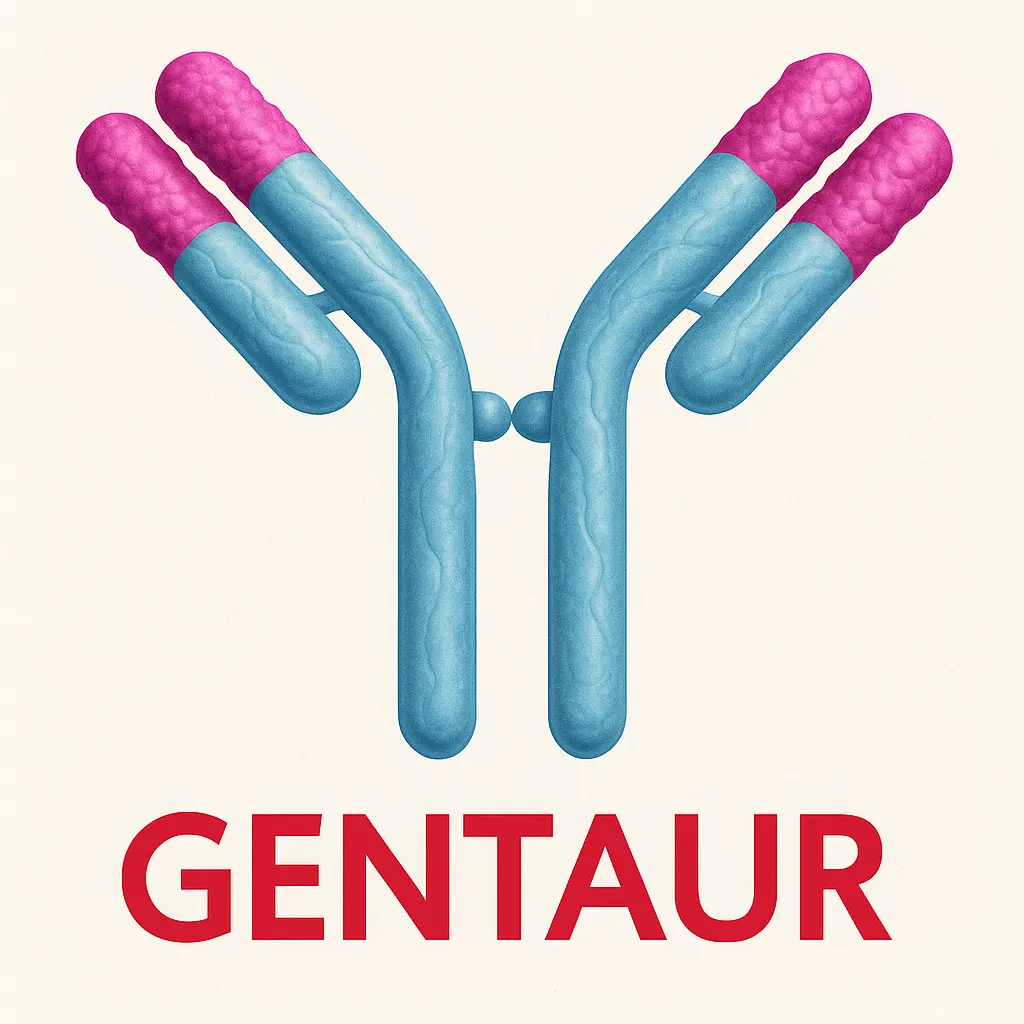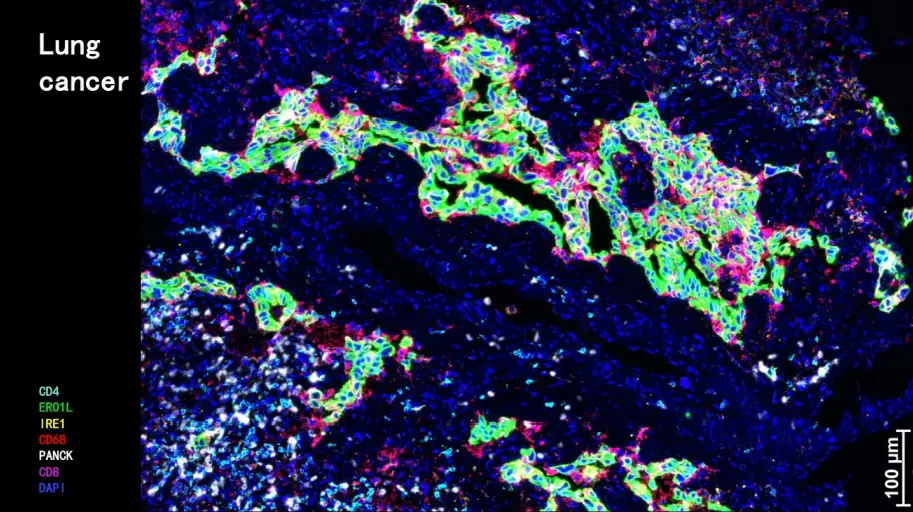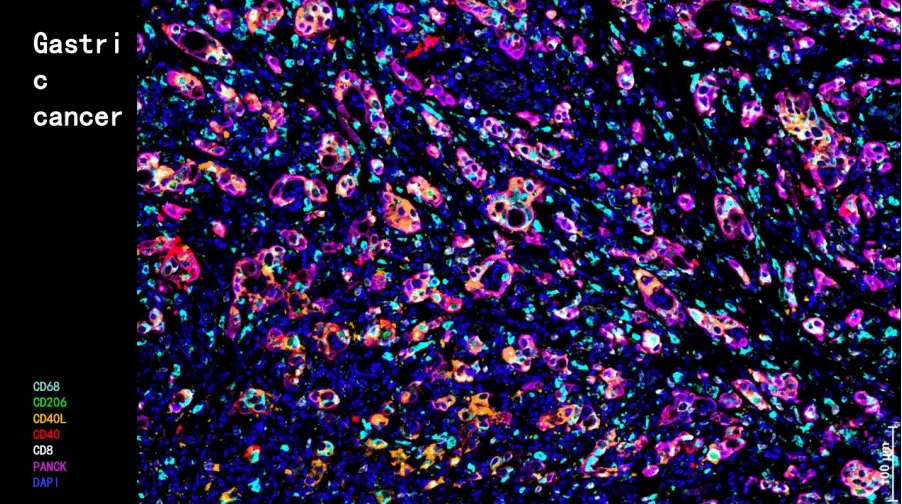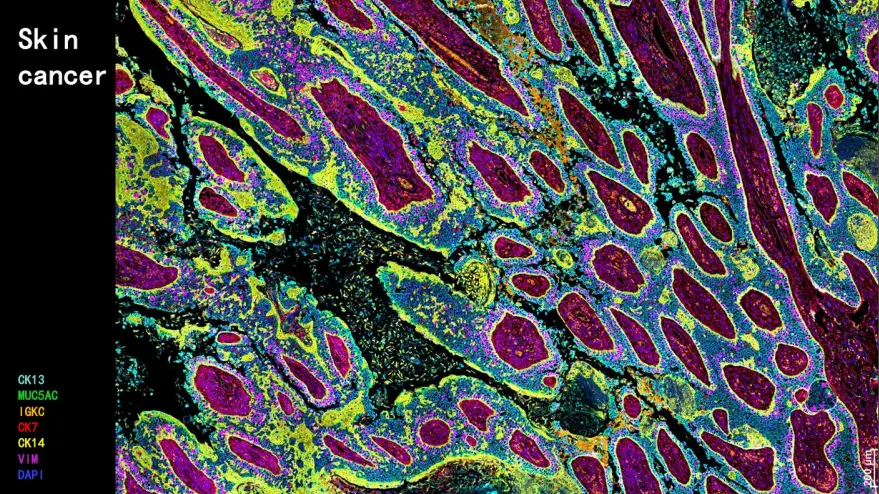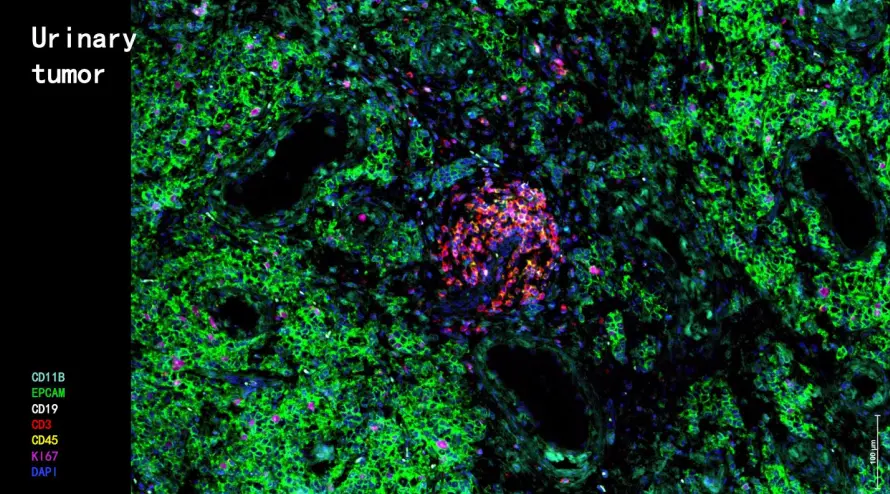Multiplex immunohistochemistry (mIHC) is revolutionizing tissue analysis by enabling the simultaneous detection of multiple biomarkers within a single tissue section. This cutting-edge technique significantly enhances pathology research, cancer diagnostics, and biomarker discovery by providing detailed spatial and phenotypic information while preserving tissue architecture.
In this article, we explore the transformative benefits of multiplex IHC, discuss the latest advancements in mIHC kits and reagents, and highlight how these technologies accelerate research workflows and clinical applications.
What is Multiplex Immunohistochemistry (mIHC) ?
Multiplex immunohistochemistry refers to the ability to detect and visualize multiple proteins or antigens simultaneously on a single tissue slide using various fluorescent or chromogenic labels. Unlike traditional IHC, which detects one marker per slide, mIHC increases throughput, reduces sample consumption, and provides rich spatial context.
Advantages of Multiplex IHC in Biomedical Research
- Enhanced Biomarker Profiling : Analyze complex protein expression patterns and cell interactions in the tissue microenvironment.
- Spatial Resolution : Preserve tissue morphology while identifying multiple targets, critical for tumor microenvironment studies.
- Sample Conservation: Reduce tissue usage by analyzing multiple markers on one slide.
- Improved Data Accuracy : Minimize variability by simultaneous staining and analysis.
Key Components of Advanced Multiplex IHC Kits
Modern multiplex IHC kits combine optimized reagents, detection systems, and software tools to streamline assay development:
- High-specificity antibodies validated for multiplexing.
- Fluorescent or chromogenic detection reagents allowing multiple marker visualization.
- Signal amplification systems to enhance sensitivity.
- Automated staining platforms compatible with multiplex protocols.
- Image analysis software for quantification and spatial mapping.
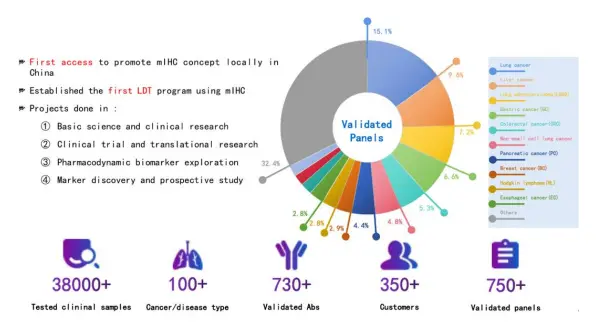
How Advanced Tools are Transforming Multiplex IHC Workflows
Cutting-edge tools and kits simplify the complex process of multiplex IHC by offering :
- Pre-validated antibody panels for common applications like immune profiling
- User-friendly protocols that reduce hands-on time and technical variability
- Integrated imaging and data analysis solutions that provide comprehensive insights
- Compatibility with digital pathology platforms enabling high-throughput studies
These innovations not only improve reproducibility but also accelerate translational research from bench to bedside.
Applications of Multiplex IHC in Cancer and Immunology
Multiplex IHC is widely used in :
- Cancer research and diagnostics : Characterizing tumor heterogeneity, immune infiltration, and checkpoint markers.
- Immuno-oncology : Monitoring immune cell populations and therapy responses.
- Neurological diseases : Mapping protein interactions in brain tissue.
- Infectious diseases : Studying pathogen-host interactions at the tissue level.
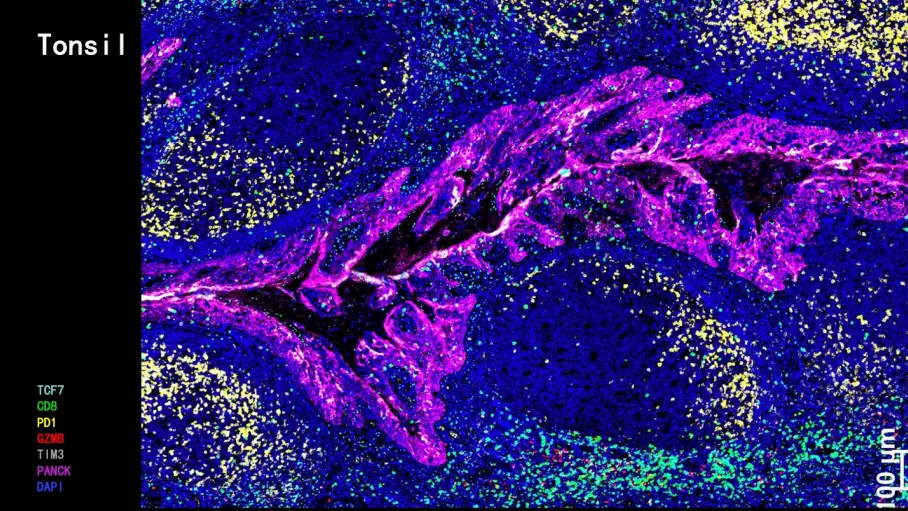
Choosing the Right Multiplex IHC Kit for Your Research
When selecting a multiplex IHC kit, consider :
- Antibody compatibility and validation for your target markers
- Detection system sensitivity and specificity
- Ease of integration with your existing lab equipment
- Availability of comprehensive protocols and technical support
Leading kits offer comprehensive solutions that maximize data quality while simplifying complex staining procedures.
Multiplex immunohistochemistry (mIHC) is unlocking unprecedented insights into tissue biology, enabling researchers and clinicians to perform detailed, multiplexed biomarker analysis with spatial context. With advanced kits and tools, mIHC workflows have become more accessible, reproducible, and scalable—paving the way for breakthroughs in cancer diagnostics, immunology, and beyond.
Explore our selection of cutting-edge multiplex IHC kits and reagents to elevate your research and clinical capabilities today.
